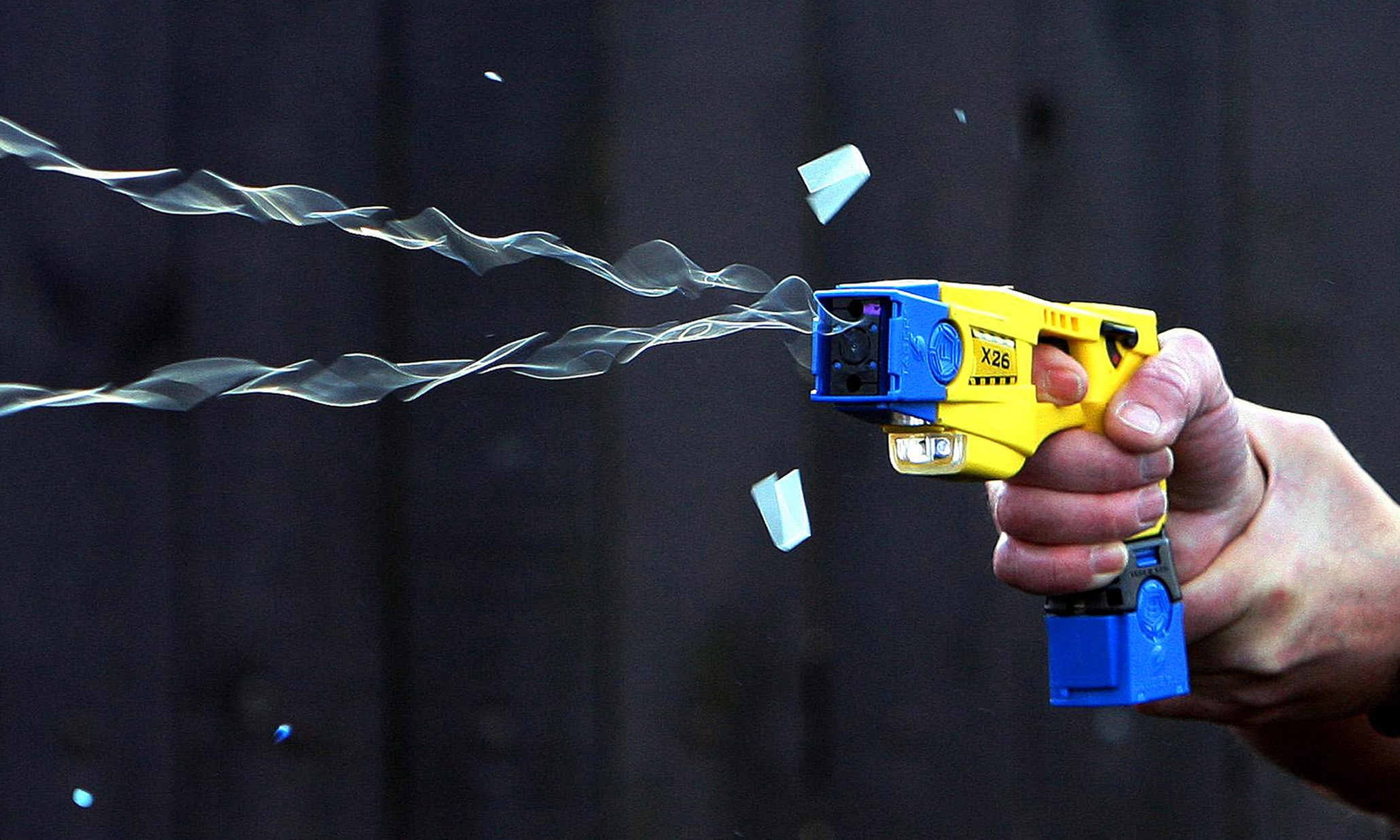The Thomas A. Swift Electric Rifle, known more commonly as a TASER, has historically been seen as the less deadly hand-held alternative to the gun. The device works by dispatching an average of 50,000 volts of shock through two wires that can shoot from up to 10.6 metres away. This jolt has the ability to generate involuntary constrictions of muscle tissue, rendering the recipient immobilized. According to Amnesty International, between 2001 and 2008, 334 Americans died after being shocked by a TASER.
Various studies have been done to evaluate the physical impact of being tased, most of these have focused on evaluating disturbances to cardiac rhythm, breathing, metabolism and stress. The outcome of these tests have shown that TASERs don’t present an increased risk of injury or death to adults in healthy physical shape. The majority of deaths that have occurred because of tasers have been due to a combination of variables such as drug or alcohol abuse and pre-existing medical conditions.
While the physiological aspect of TASER shocks has been evaluated, the impact of TASERs on neurological health has not yet been thoroughly explored. This information is especially relevant for the time period immediately after a TASER shock because this is usually the time frame during which many suspects are interviewed. If the claim that suspects enter a state of significant disorientation after being tased, as the new study by Drexel University and Arizona State University titled, TASER Exposure and Cognitive Impairment: Implications for Valid Miranda Waivers and the Timing of Police Custodial Interrogations, suggests, then the legitimacy of statements taken during this time is brought into question.
A bewildered suspect may not be aware of the fact that they are waiving their rights of protection from self-incrimination. The study, conducted by Robert Kane, professor of the Drexel’s Criminology and Justice Studies Department and Michael White, a professor at Arizona State University’s School of Criminology and Criminal Justice, involved 142 participants who were screened for substance issues, and cardiac and psychological problems. There was a control group to which nothing was done, a group that was made to mirror the adrenaline rush of a police encounter by repeatedly pummeling a punching bag, a third group that was tased in five-second bursts and a final group that underwent a five-second TASER burst after hitting the punching bag.
The tests for cognitive ability were conducted at four different intervals: Before the test, right after, an hour later and after a week had passed. One of the tests, the Hopkins Verbal Learning Test, which assesses verbal learning and short-term memory recall ability, showed the greatest fluctuations. A quarter of the participants experienced a reduction of about four words recalled correctly (from 26.68 to 22.53 with a perfect score being 36)
“[This] represents the mean level cognitive functioning for 79-year-old adults, placing participants within the range of mild cognitive impairment,” read a press-release posted by Drexel University.
This effect generally wore off before one hour had passed.
“The findings from this study suggest that people who have been shocked with a TASER may be unable to understand and rationally act upon his or her legal rights,” Kane stated in the press release.
Innocent people are at risk of unintentionally implicating themselves, whereas guilty parties might not be in a state to give accurate information. This first-of-its-kind study opens up a conversation about how to conduct the most effective interrogations. Even the slight possibility that an investigation could be compromised due to a TASER’s unforeseen mental side effects is reason enough to revisit policy regarding interrogation procedure for a victim of a TASER shock.
TASER shocks can derail the decision-making process of an individual and these researchers propose that waiting an hour after someone has been shocked to interrogate them might be all that is needed to avoid miscommunication. And when trying to prove whether someone is guilty or not guilty, a miscommunication can mean life or death.








